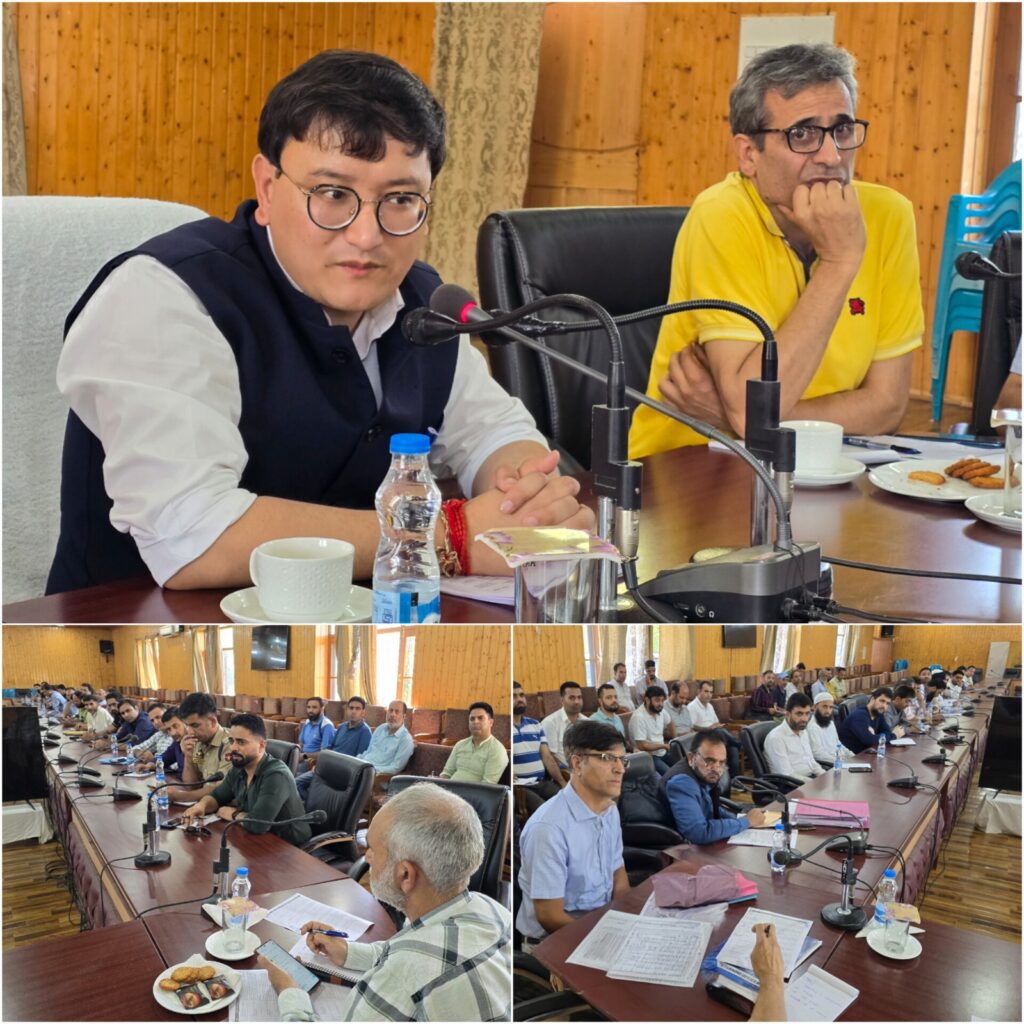General Assembly Elections: Training Session held for Nodal Officers at B’la
DEO underscores importance of strict compliance with MCC guidelines

BARAMULLA, AUGUST 19: A comprehensive training session for District and Assembly Constituency-level Nodal officers was successfully conducted at Dak Bungalow Baramulla, under the leadership of the District Election Officer (DEO), Minga Sherpa in preparation for the upcoming Assembly elections.
The session aimed to ensure that all officers are well-prepared to handle the various responsibilities associated with the election process.
During the session, the DEO provided in-depth guidance on the conduct of mock polls, highlighting their crucial role in verifying the functionality of Electronic Voting Machines (EVMs) and fostering confidence among polling staff and voters. Officers were briefed on the systematic procedures required to conduct these mock polls efficiently and without discrepancies.
The training also focused on expenditure monitoring, with the DEO outlining the importance of adhering to the expenditure limits established by the Election Commission of India. Guidelines were provided to ensure that election-related expenses are meticulously tracked and managed to maintain the fairness and integrity of the electoral process.
A significant portion of the session was dedicated to the enforcement of the Model Code of Conduct (MCC). The DEO underscored the importance of strict compliance with MCC guidelines, which are essential for ensuring that all political parties and candidates adhere to the rules, thereby preventing electoral malpractices.
The role of the Media Certification and Monitoring Committee (MCMC) was also covered extensively. The DEO explained the committee’s responsibilities in monitoring paid news, election advertisements, and media-related activities to ensure fair and unbiased coverage during the election period.
Efficient material management was another key focus area. The session provided detailed instructions on the proper handling and distribution of essential election materials, such as EVMs, VVPATs, and ballot papers, to prevent any logistical issues that could potentially disrupt the election process.
In addition, the DEO highlighted the Systematic Voters’ Education and Electoral Participation (SVEEP) initiatives, aimed at increasing voter awareness and turnout. Officers were briefed on the strategies to be implemented for effective voter education, ensuring informed participation in the electoral process.
EVM management was also discussed, with the DEO emphasizing the importance of maintaining the security and integrity of these machines. Proper handling, storage, and security protocols were outlined to prevent any tampering or misuse.
The session included a comprehensive communication plan, with strategies for effective communication among election officers, polling staff, and voters. This is critical for ensuring seamless coordination across all aspects of the election process.
Lastly, the Voter Helpline was addressed as a key resource for assisting voters with queries, grievances, and information related to the electoral process. The DEO stressed the importance of providing timely support to voters through this helpline to enhance their election experience.
The DEO concluded the session by emphasizing the need for strict adherence to protocols, effective coordination among departments, and meticulous planning. This will ensure that the Assembly elections are conducted smoothly and successfully, upholding the highest standards of integrity and transparency.






